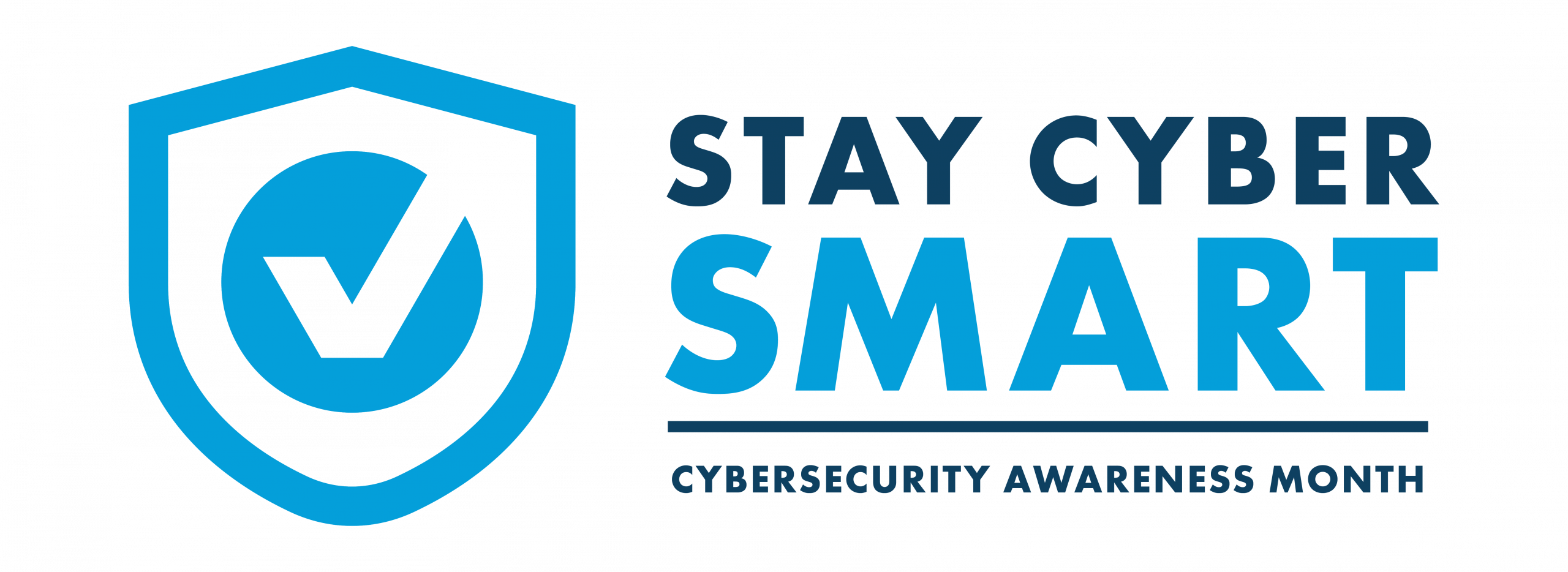Beware of Giving Away Too Much Info

As Cybersecurity Awareness Month wraps up during the spookiest week of the year, it’s the perfect time to talk about the “overshare scare.”
To you, your name, birthday, or email might just be everyday info. But to cybercriminals? It’s like Halloween candy—sweet, tempting, and a ticket to your accounts, identity, money, and even your reputation.
Defending your personal information is one of the most important moves you can make to protect yourself online. So let’s bravely navigate the dark corners of the cyber world, where scammers are lurking and ready to pounce on overshared data. Let’s make sure you Stay Cyber SMART:
- Set strong, unique passwords.
- Make multifactor authentication a habit.
- Avoid risky links, attachments, and senders.
- Regularly do software and device updates.
- Take care with personal info.
What’s Considered Personal Info?
Personal information doesn’t just mean Social Security numbers or bank account logins. It also includes things like your:
- Full name
- Date of birth
- Home address
- Email address
- Phone number
- Driver’s license number
- Health records
- School, work, or location data
- Personal photos
- Pets’ names (yes, hackers love those, too!)
Basically, if it can identify you or be linked to you, it’s personal—and it’s worth protecting. Don’t let your digital skeletons fall out of the closet!
What Can Hackers Do With It?
Let’s break it down with some real-life examples of how even small bits of personal info can be misused—like Frankenstein assembling a monster out of stolen parts.
1. Identity Theft
All a criminal needs is a few pieces—say, your name, birth date, and address—to begin opening fake credit cards or applying for loans. Many victims don’t realize it has happened until months later, when their credit score goes full zombie mode.
North Dakota not-so-fun fact: In recent years, identity theft reports have been rising even in smaller communities. Cybercrime is no longer a “big city” problem—it’s spreading faster than a haunted hayride rumor.
2. Account Takeover
Say your email and phone number get exposed in a data breach. A scammer may try password resets on your accounts—and if you haven’t set up MFA (see the second blog post in our Stay Cyber SMART series!), they might just walk through your digital front door like a masked trick-or-treater.
3. Social Engineering Scams
It’s worth reiterating that bad actors can use publicly visible info (like job titles, birthdays, or photos of family members) to craft highly believable scams. Ever get a call that starts with, “Hi, this is Jeff from your bank. I see your birthday is Aug. 3.” Spooky, right? And very effective.
The Social Sharing Epidemic (a.k.a. ‘Stranger Danger 2.0’)
We all love a good life update, but some things are better kept offline—or at least shared with caution. Before you post, ask yourself:
- Does this photo show my address, license plate, school name, or a child’s face?
- Am I broadcasting that I’m out of town? (“Hello from Florida!” = “My house is empty, so help yourself!”)
- Note: If you’re traveling out of the country, be mindful of North Dakota’s International Traveler Guidelines.
- Could someone use this info to answer my security questions?
Pro Tip: Avoid posting things like “My first pet’s name was Snickers” or “Born and raised in Halloweentown”—those are the exact details hackers love to use for password guesses and phishing.
Tips to Secure Your Info
There’s a way to do this without going full-on hermit mode in a haunted house. Just take these smart steps to better protect your info:
Be Picky About Permissions
Apps don’t need your entire life story. Only allow access to your location, contacts, camera, etc., if it’s truly necessary.
Use Privacy Settings
Check your privacy settings like you’re checking under the bed for monsters—often and thoroughly. Only let the friendly spirits (a.k.a. friends) see your content.
Limit What You Share Publicly
Skip the quizzes like “What’s your favorite Halloween costume?” That’s just a treat bag full of clues for identity thieves.
Monitor Your Digital Footprint
Google yourself. See what’s out there. If your digital ghost is haunting pages you don’t remember, it might be time to clean house.
Download Our Digital Security Guide!
The North Dakota Digital Security Guide shares easy tips to help you stay safe online, keep your personal information private, and protect your money in today’s connected world.
And if you really want to go full vampire-slayer on scammers:
- Freeze your credit with Equifax, Experian, or TransUnion—it’s free and effective.
- Sign up for alerts from your bank.
- Check HaveIBeenPwned.com to see if your info has appeared in any dark web séances.
- Use a VPN (virtual private network) to keep your internet activity hidden from prying eyes, especially on public Wi-Fi.
A Final Word From the Crypt
In the digital world, being too open can lead to some seriously closed doors—like frozen bank accounts, stolen identities, or worse.
Protecting your personal info isn’t about paranoia. It’s about empowerment. Every step you take to guard your information drives a stake through the heart of cybercrime.
So this week, take 10 minutes to:
- Google your name and city to see what pops up.
- Check your social media privacy settings.
- Delete old apps you don’t use (they may still have access to your data!).
- Revisit your “About Me” sections—especially those birthday shoutouts and “favorite pet” posts.
Remember, what you don’t share can’t be stolen. So be a vault, not a trick-or-treat bucket overflowing with secrets. Stay alert, stay safe, and above all—Stay Cyber SMART.

